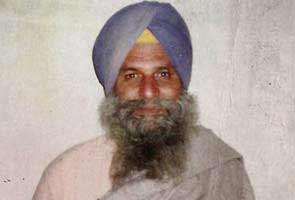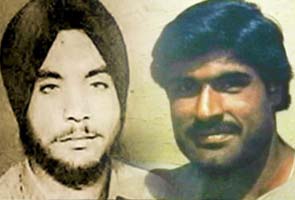Finance minister Pranab Mukherjee attends the North Block office in New Delhi for one last time today as he prepares to run for President of India. He said that he will submit his resignation today. Here are the 10 latest facts about his departure.
1) Pranab Mukherjee will attend office today and at 4.30 p.m. will meet Prime Minister Manmohan Singh to submit his resignation. He will also resign from the primary membership of the Congress Party. After meeting his colleagues in the Congress Working Committee on Monday, he said leaving the party was an ‘emotional moment’.
2) There is no announcement yet on who will succeed him as finance minister. Speculation suggests that the prime minister may keep the portfolio with himself. For now, it is likely that Pranab Mukherjee would hand over the charge to him. Manmohan Singh already holds the ministries of space, atomic energy, planning, personnel, and public grievances and pensions.
3) If that happens, it could push up the number of tasks that the prime minister’s office has to handle significantly. Also, Mr. Mukherjee headed a dozen empowered group of ministers committees or EGoMs that deal with critical issues as telecom, divestment, food security, water issues, gas pricing and large power projects, among others, according to the Cabinet Secretariat.
4) Among major committees, Mr. Mukherjee headed the EGoM on vacation of spectrum and auction of 3G Spectrum, and to look into the grant of licence and allocation of 2G spectrum as well. This group is mandated with deciding on quantum of spectrum to be auctioned, spectrum charges, reserve price for auction, recommend measures for vacation of adequate additional spectrum by the existing large users such as Defence, Space, Paramilitary, etc.
5) EGoM to consider issues concerning procurement, management of food grains stocks, revision of central issue prices of food grains and the proposed law on food security. Critically, it deals with minimum support price operations, management of central pool stocks of wheat and rice, food procurement/purchase/management of pulses and sugar.
6) Decisions on price band and final price of sale of shares held by Government of India in all Central Public Sector Enterprises. This essentially is the group in which divestment decisions are taken, and it is manned by only two others – Home Minister P Chidambaram and Planning Commission Deputy Chairman Montek Singh Ahluwalia.
7) Besides these committees, the list of tasks for the new person in charge of North Block would be to douse negative investor sentiment. Investors want the government to cut borrowing by reducing the fiscal deficit. Mr. Mukherjee started off on a strong note on the fiscal consolidation front. In the first year of UPA-II, the fiscal deficit for FY2010 came in at 6.8 per cent, almost one percent less than the 7.8 per cent in fiscal 2009. Since then, it has been steadily downhill. In FY2012, it bloated to 5.9 per cent of gross domestic product, largely because of subsidy bills and welfare spending. The deficit target for FY13 has been set at 5.1 per cent of GDP but analysts believe it could go as high as 6 per cent.
8) Vodafone’s 2007 acquisition of Hutchison Essar quickly snowballed into an investor sentiment problem after Finance Minister Pranab Mukherjee introduced a retrospective tax amendment that would require all overseas deals involving Indian assets to pay capital gains tax. While Vodafone claims paying about Rs 20,000 crore in taxes, interest and penalty will increase costs for subscribers, the move has left global investors wary of investing in India through such routes for fear of such large tax payouts. The new finance minister has his/her task cut out.
9) Mr. Mukherjee has also announced his intention to curb black money, which often is repatriated to India disguised as investment by foreign institutional investors (FIIs). However, given the lack of regulatory clarity as to how this will done, legitimate FIIs and holders of P-notes have started to pull out their money, fearing harassment by tax authorities. The new person in charge has to convince investors that those who comply with rules will not be chased by tax authorities.
10) Some tough decision making on foreign direct investment or FDI is needed. Multi-brand retail, aviation, pension, insurance are some sectors where there is a need to act. Besides this, the implementation of goods and services tax and the direct tax code or DTC are other major challenges waiting for the new incumbent at the North Block.



